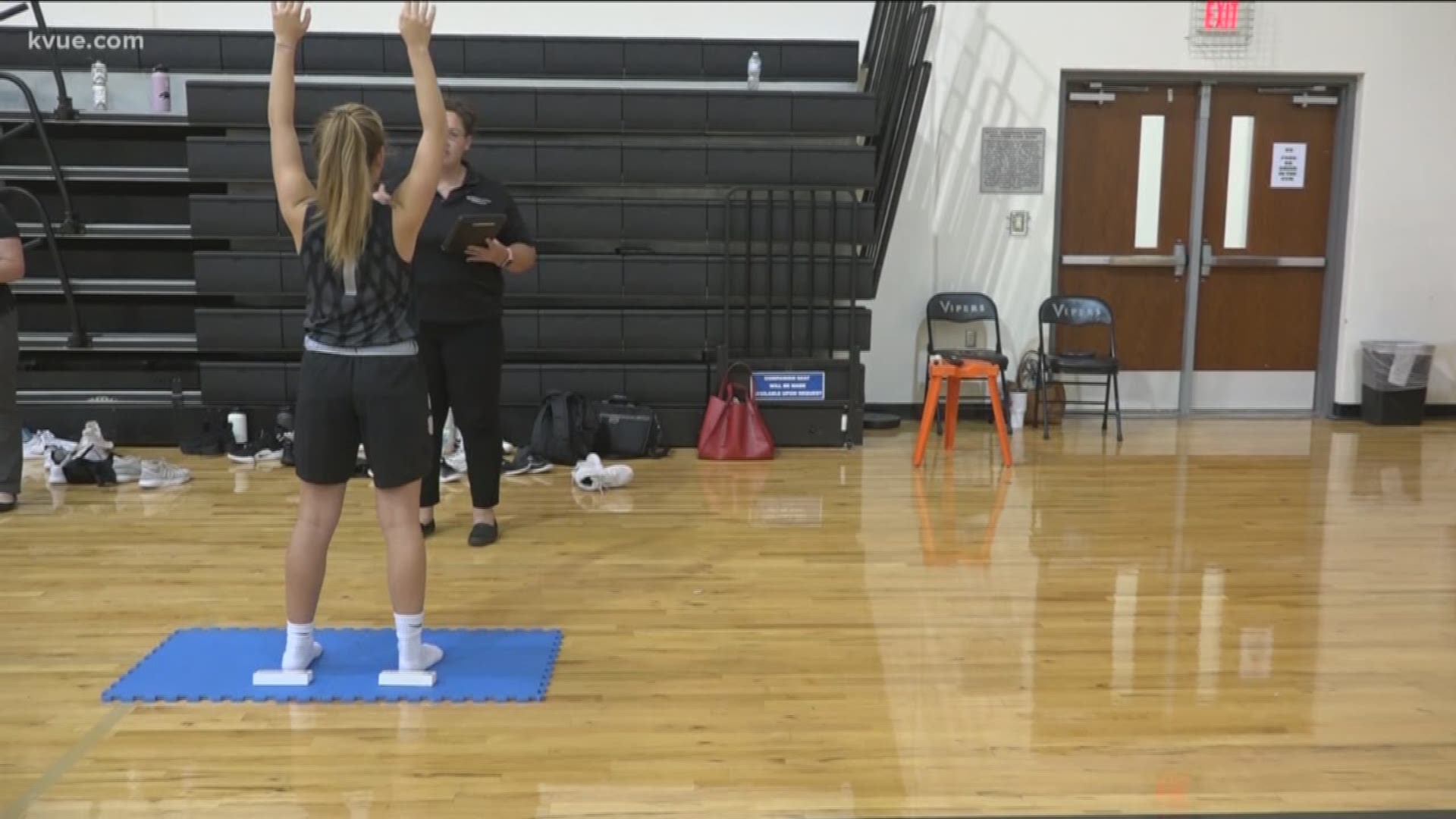AUSTIN, Texas — Seeing your kid get injured on the court or the field can be a scary sight. Some parents think it's just a part of kids playing sports.
But a new program called Fusionetics is fighting that idea and trying to build stronger athletes.
The Vandegrift High School girl's varsity basketball team is preparing for the upcoming season. One of those players is senior Cassi O'Rourke, who has been playing since the first grade.
"It's super fast-paced, and you get rewarded a lot for what you do," O'Rourke said.
Even though she loves basketball, she has already had to deal with a lot of injury issues through the years.
"I jump a lot since I'm at the post and have to rebound," O'Rourke said. "I've had lots of ankle injuries throughout my basketball career."
Kaya Pehrson is a junior on the team who has also had some problems.
"I'm really prone to like, rolling my ankles just doing normal things like jumping or just coming down on it wrong," Pehrson said. "My hip flexors are really bad, too."
The girl's basketball coach, Jonathan Jones, has been with the school for eight years and with the girl's team for five. A couple of years ago, he noticed his players were dealing with a lot of issues.
"We had about a 12-month span where we had four major non-contact injuries," Jones said. "I wanted to be able to do as much as I could to help our athletes stay healthy."
RELATED:
That's when Jones heard about Fusionetics from one of his coaching friends. It's a program run by Baylor Scott and White where athletic trainers come to schools, facilities or gyms to test athletes' mobility.
Kristine Foltz is the sports medicine manager of the program and said it's the perfect combination of in-person care and technology.
"We're looking at 30 different checkpoints of the body, and it's a pass-fail criteria," Foltz said. "We want to help identify what are causing these injuries, and then give a solution to the problem."
Foltz said this program started in 2014, first coming to Austin in 2017. The motivation behind the program is the rise in a certain type of injuries across the country.
"We've seen a lot of surge in injuries that are non-contact or overuse, especially ACL tears," Foltz said. "These are the injuries we want to try help prevent."
Once the trainers gather the data through these checkpoints during the test, they then provide personalized stretches and exercises for athletes to do on their own.
"This injury prevention program that they all get is available through an app on their phone with videos and instructions on how to do the exercises and the stretches so they can do this all at home by themselves," Foltz said. "If we're able to prevent one injury, that's a win for us."
Since these players starting using Fusionetics, Jones said there hasn't been a single non-contact injury.
"It gives the girls a peace of mind," Jones said. "Of course, there's nothing you can do to completely prevent all of those injuries, but I want to just be able to do as much as we could to help our athletes. I feel like this is helping."
If you are interested in learning more about the program, you can email Foltz at kristine.foltz@bswhealth.org.
PEOPLE ARE ALSO READING:

